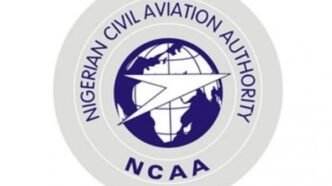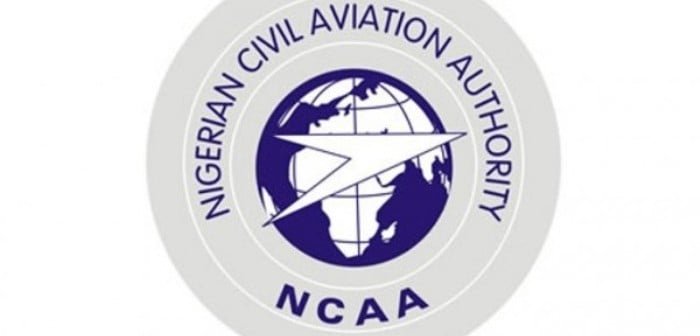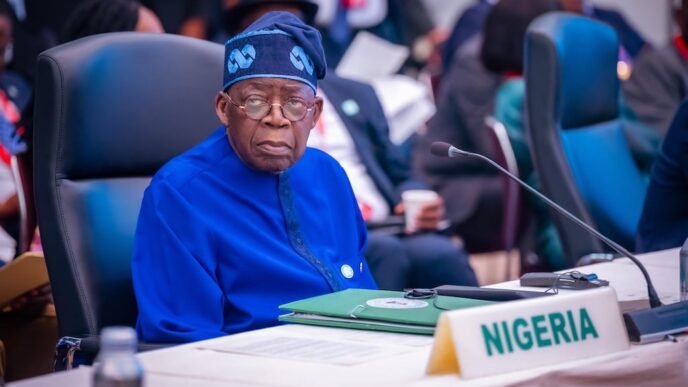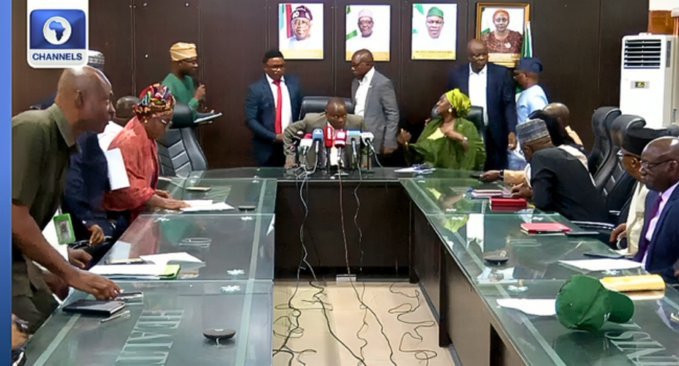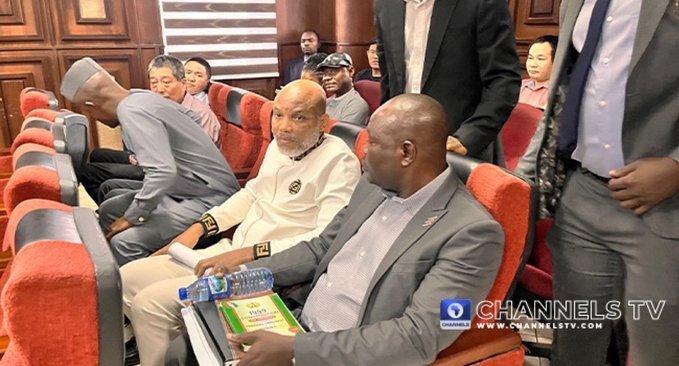The Nigeria Civil Aviation Authority (NCAA) has announced plans to introduce a new $11.50 levy on all international air tickets for both inbound and outbound passengers, a move that could generate over $1 billion in revenue over the next two decades. The new fee, categorized as a security levy, will take effect soon after final regulatory approval, and it has already sparked debate among industry stakeholders over its potential impact on ticket prices and air travel demand.
New Levy to Bolster Aviation Security
According to the NCAA, the new charge—officially tagged the Advance Passenger Information System (APIS) Levy—is designed to strengthen Nigeria’s aviation security architecture and enhance passenger data management systems in line with international aviation standards set by the International Civil Aviation Organization (ICAO).
The APIS Levy will be applied to every international ticket issued for flights either departing from or arriving in Nigeria. This means that every passenger—Nigerians and foreign nationals alike—will pay an additional $11.50 on top of the current $20 security charge, bringing the total security-related ticket fee to $31.50 per passenger.
The NCAA explained that the revenue from the levy would be dedicated exclusively to developing and maintaining advanced passenger screening and security systems across Nigerian airports.
“The APIS levy is a vital component of Nigeria’s aviation modernization agenda,” an NCAA spokesperson said in a statement. “It will enable the implementation of robust data management tools that support real-time information exchange between airlines, security agencies, and immigration services, thereby enhancing national security and passenger safety.”
How the Advance Passenger Information System Works
The Advance Passenger Information System (APIS) is a global standard used by countries to collect and process passenger information before arrival or departure. The system allows aviation and immigration authorities to receive details of passengers in advance—such as passport numbers, visa data, and travel itineraries—to identify potential security risks or persons of interest.
Countries such as the United States, United Kingdom, Canada, and the United Arab Emirates already operate similar systems, integrating APIS data into national security databases.
Nigeria’s version of APIS, according to the NCAA, will connect with the Nigeria Immigration Service, the Department of State Services (DSS), and other security agencies to enhance border surveillance and streamline passenger clearance.
“The levy will directly fund the procurement, deployment, and maintenance of APIS infrastructure at all Nigerian international airports,” the statement continued. “This is not just a revenue measure—it is an investment in national and aviation security.”
Projected Revenue and Implementation Timeline
The NCAA estimates that the new levy could yield more than $1 billion in revenue over the next 20 years, with the funds ring-fenced for aviation safety and infrastructure enhancement projects.
Under the proposed arrangement, airlines operating in Nigeria will collect the $11.50 charge at the point of ticket purchase and remit it directly to the NCAA, which will then channel the proceeds to a special aviation security account.
A senior NCAA official, speaking on condition of anonymity, disclosed that the agency has concluded plans to integrate the fee collection into existing ticketing systems to ensure transparency and efficiency.
“We have concluded technical and administrative processes for the introduction of the levy. The system is automated and will ensure accurate remittance by all airlines. We expect full rollout once all stakeholders finalize compliance procedures,” the source said.
Airline Operators Express Concerns
However, the policy has generated mixed reactions within the aviation industry. Airline operators and travel agencies have expressed concerns that the additional fee could further inflate already high international ticket prices in Nigeria—one of the most expensive markets in Africa.
Data from the African Airline Association (AFRAA) shows that Nigeria currently ranks as the third most expensive country in Africa in terms of air ticket taxes and charges, trailing only behind Senegal and Ghana.
A representative of the Airline Operators of Nigeria (AON), who spoke to journalists in Lagos, warned that the new fee could discourage air travel and reduce Nigeria’s competitiveness as an aviation hub.
“This additional $11.50 levy might appear small, but when combined with other charges, it makes Nigeria one of the most expensive places to fly in and out of. High costs discourage tourism, trade, and business travel,” the official said.
Travel agencies also echoed similar sentiments, noting that airlines might pass the costs directly to passengers, further worsening the affordability crisis in Nigeria’s aviation sector.
Government Defends Policy
Despite these concerns, the NCAA and the Federal Ministry of Aviation and Aerospace Development have defended the policy, insisting that the new levy is necessary to meet international security standards and align with global best practices.
Minister of Aviation and Aerospace Development, Festus Keyamo, has repeatedly emphasized the need for Nigeria to modernize its aviation systems and adopt technologies that enhance passenger profiling and national safety.
“Security is non-negotiable in modern aviation. The APIS levy is a strategic investment that will make Nigeria’s airspace safer and more compliant with ICAO standards,” a ministry official explained. “It is not about taxing passengers—it is about protecting them.”
Economic Implications and Stakeholder Reactions
Economic analysts believe the new levy could provide much-needed funds for Nigeria’s underfunded aviation infrastructure but caution that authorities must ensure transparency and accountability in its utilization.
Aviation economist Dr. Adebayo Ajayi noted that while the potential $1 billion revenue projection is substantial, its success will depend on strict financial management and oversight.
“Nigeria’s aviation sector needs consistent investment in technology and security infrastructure. However, the management of such funds must be transparent to avoid misuse. Passengers will only tolerate higher fees if they see tangible improvements in airport safety and efficiency,” Dr. Ajayi said.
Passengers Brace for Higher Costs
For passengers, the new levy adds to a growing list of charges that have made international air travel increasingly expensive. In addition to the existing $20 security fee, travelers already pay several other surcharges, including fuel taxes, airport development levies, and service charges imposed by airlines and airport authorities.
Many passengers have taken to social media to express frustration over what they describe as “incremental ticket taxes” that make Nigerian routes disproportionately costly compared to neighboring countries.
A Lagos-based frequent flyer, Chinwe Okafor, said the cumulative effect of these charges is becoming unbearable.
“Every year, there’s a new charge added to our tickets. It’s unfair that Nigerian travelers always bear the brunt of government revenue measures. We need better service before more fees,” she said.
Global Context and Comparisons
Globally, aviation authorities impose security-related levies to fund airport and border control systems. For instance, the United States’ September 11th Security Fee adds $5.60 per one-way trip, while the United Kingdom’s Air Passenger Duty can exceed £100 for long-haul flights.
However, Nigeria’s new cumulative $31.50 in security-related ticket fees now ranks among the highest in Africa—a development that could influence passenger choices and airline route decisions.
Transparency and Oversight Mechanisms
In response to industry concerns, the NCAA has assured that mechanisms are being put in place to ensure proper monitoring and reporting of all funds generated through the APIS levy. The agency said the proceeds will be audited annually, with reports made available to the Federal Ministry of Finance and the National Assembly Committees on Aviation.
“Every kobo collected will be accounted for,” the NCAA promised. “This initiative is meant to enhance, not burden, Nigeria’s aviation industry.”
Conclusion
The introduction of the $11.50 Advance Passenger Information System levy marks a major development in Nigeria’s aviation landscape—balancing between the need for enhanced security and the pressure of affordability.
While the NCAA insists the policy is in line with global standards and aimed at strengthening aviation safety, airline operators and passengers are urging the government to consider the cumulative impact of rising charges on travel demand.
If properly managed, the initiative could usher in a new era of security innovation in Nigeria’s aviation sector. However, without transparency and stakeholder buy-in, it risks being seen as just another financial burden on the flying public in a market already struggling with high operational costs and declining passenger confidence.

